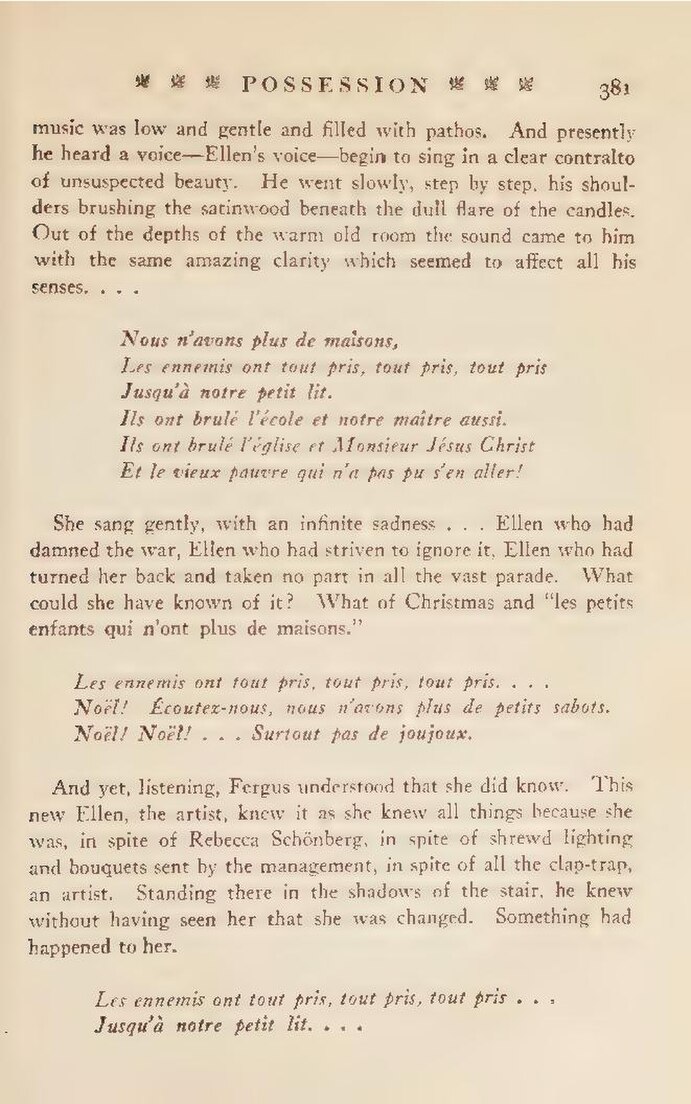music was low and gentle and filled with pathos. And presently he heard a voice—Ellen's voice—begin to sing in a clear contralto of unsuspected beauty. He went slowly, step by step, his shoulders brushing the satinwood beneath the dull flare of the candles. Out of the depths of the warm old room the sound came to him with the same amazing clarity which seemed to affect all his senses. . . .
Les ennemis ont tout pris, tout pris, tout pris
Jusqu'à notre petit lit.
Ils ont brulé l'école et notre maître aussi.
Ils ont brulé l'église et Monsieur Jésus Christ
Et le vieux pauvre qui n'a pas pu s'en aller!
She sang gently, with an infinite sadness. . . . Ellen who had damned the war, Ellen who had striven to ignore it, Ellen who had turned her back and taken no part in all the vast parade. What could she have known of it? What of Christmas and "les petits enfants qui n'ont plus de maisons."
Noël! Écoutez-nous, nous n'avons plus de petits sabots.
Noël! Noël! . . . Surtout pas de joujoux.
And yet, listening, Fergus understood that she did know. This new Ellen, the artist, knew it as she knew all things because she was, in spite of Rebecca Schönberg, in spite of shrewd lighting and bouquets sent by the management, in spite of all the clap-trap, an artist. Standing there in the shadows of the stair, he knew without having seen her that she was changed. Something had happened to her.
Jusqu'à notre petit lit. . . .
